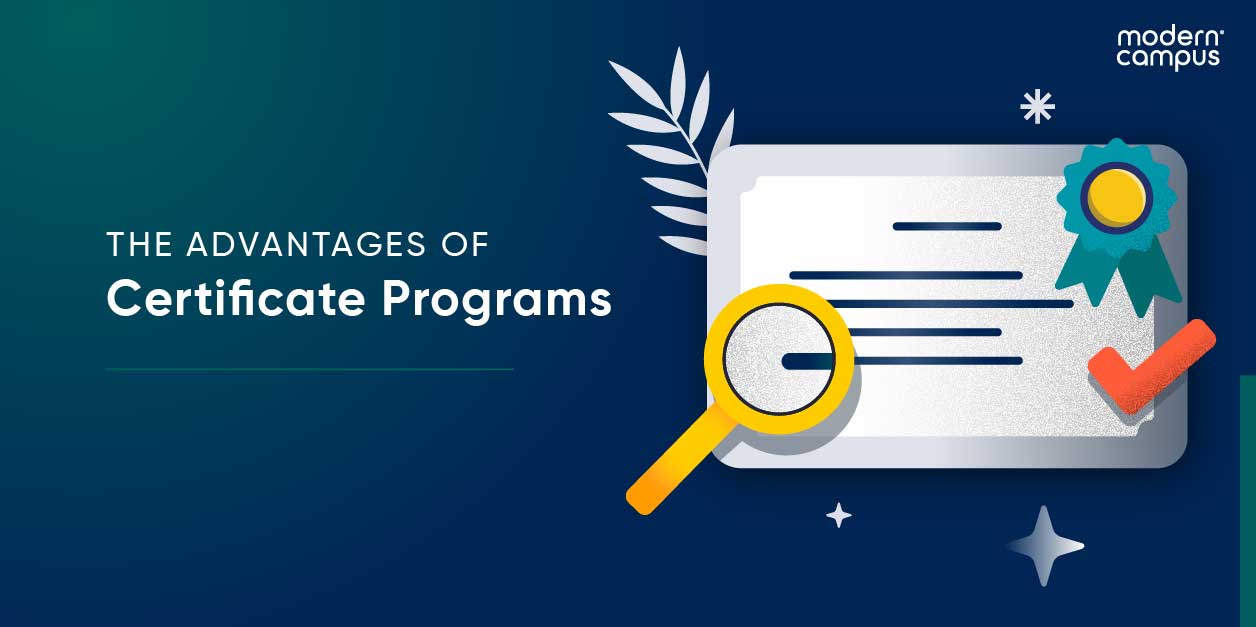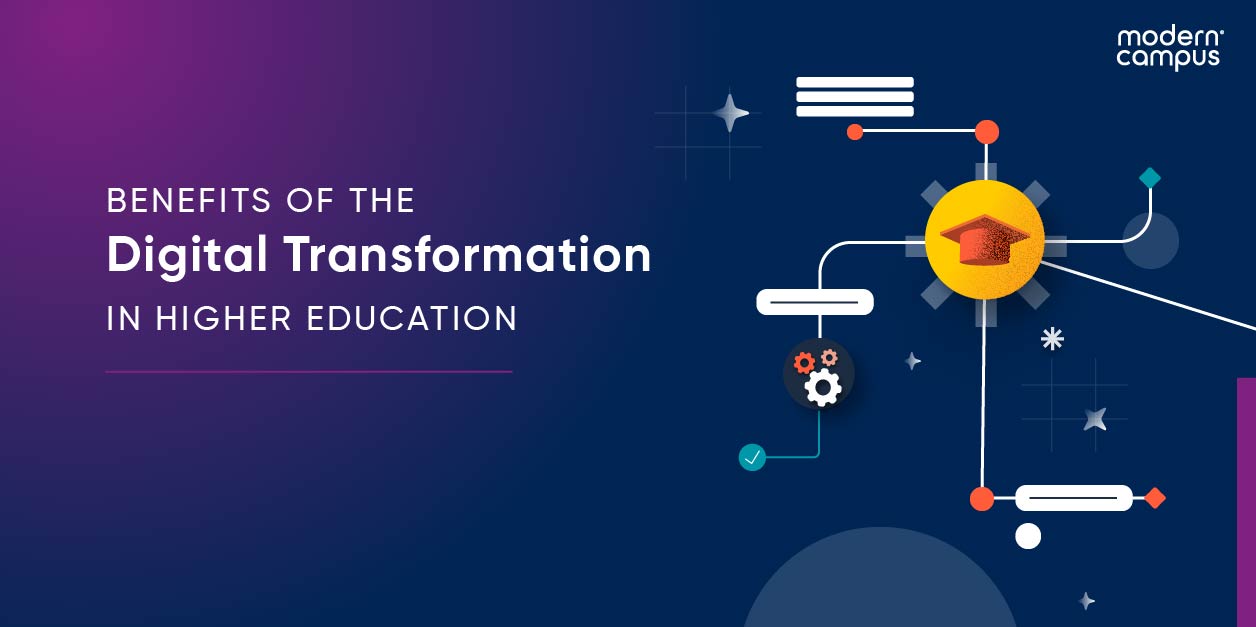The Benefits of Certificate Programs in Higher Education
Every professional needs upskilling in order to maintain a competitive edge in the workforce. Keeping ahead of the latest skills and knowledge has become more crucial than ever in order to align with evolving market demands.
Although traditional degree programs have long been the standard solution, certificate programs have gained popularity due to their ability to offer targeted, accelerated skill development.
There are many benefits of earning certificates alongside a degree, and leaders need to keep short-term educational benefits top of mind.
Advantages of Certificate Programs
Accelerated Skill Development
Certificate programs are designed to provide focused and specialized training in a specific field or industry. This helps the learner get industry recognition for their skills.
Unlike traditional degree programs that often take several years to complete, certificate programs offer an accelerated learning experience. This allows learners to acquire new skills and knowledge quickly, enabling that high level of skill enhancement while entering or advancing within their chosen career field.
Industry-Relevant Expertise
Certificate programs are developed in close collaboration with industry experts and professionals. This ensures that the curriculum is aligned with current industry trends and demands.
By enrolling in a certificate program, learners gain access to the latest knowledge and best practices in their field, making them highly competitive in the job market and accelerating their career advancement.
Online Learning Opportunities
One of the greatest advantages of certificate programs is their flexible learning formats. Many programs are offered online, allowing individuals to learn at their own pace and from the comfort of their homes.
Online learning eliminates geographical barriers and allows working professionals to balance their continuing education with their existing commitments. They’re able to achieve that career growth at a time and place that works best for them.
Diverse Learning Formats
Certificate programs often offer diverse learning formats, catering to a wide range of learning preferences.
Whether it's through traditional classroom instruction, online lectures, interactive workshops, or hands-on practical experiences, individuals can choose the format that best suits their learning style and needs.
Increased Employability
Employers value candidates who possess specialized skills and expertise.
By completing a certificate program, individuals demonstrate their commitment to professional development and their ability to acquire industry-specific knowledge. This increases their employability and enhances their chances of securing desirable job opportunities.
Recognition by Employers
Certificate programs are well regarded by employers, as they provide tangible evidence of a candidate’s competence and proficiency in a particular field.
Employers recognize the value of specialized training and often prioritize candidates with relevant certificates during the hiring process.
Connecting with Peers
Certificate programs offer an excellent opportunity to connect and collaborate with like-minded individuals who share similar career goals and interests.
Building networking opportunities among peers within the industry can lead to valuable professional connections, collaborations, and ongoing support.
Interaction with Industry Professionals
Many certificate programs involve guest lectures or industry-specific projects, providing individuals with the chance to interact directly with professionals in their field.
This exposure enables students to gain insights, guidance, and mentorship from experienced industry practitioners, further enriching their learning experience and increasing job opportunities.
Addressing Common Concerns and Challenges
Navigating Program Selection
With the increasing popularity of certificate programs, choosing the right program can be overwhelming.
It is important to conduct thorough research, consider personal career goals, and assess the program's reputation, curriculum, and faculty expertise before making a decision.
Certificate vs. Degree Debate
Certificate programs are often seen as an alternative to traditional degree programs.
While a degree provides a broader educational foundation, a certificate program offers specialized and targeted training. The choice between the two depends on individual career aspirations, time constraints, and specific industry requirements.
Balancing Work and Education
Many individuals who pursue certificate programs are working professionals seeking to enhance their knowledge and skills, or transition to a new career path.
Balancing work and education can be challenging, but with effective time management, discipline, and support from employers or educational institutions, it is possible to juggle both commitments successfully.
Why Institutions Should Offer Certificate Programs
In today's fast-paced and constantly evolving job market, certificate programs play a crucial role in bridging the skills gap. They provide a practical and accessible pathway for learners to acquire industry-relevant expertise quickly.
By offering certificate programs, educational institutions, and organizations contribute to the development of a highly skilled and competitive workforce, ultimately driving economic growth and innovation.
How to Deliver a Seamless Certificate Student Experience?
Technology integration plays a pivotal role in delivering a seamless experience to certificate students. By implementing a self-serve registration system, students gain convenient access to course enrollment, eliminating the need for administrative intervention. This fosters a more flexible and personalized learning environment.
With technology-driven solutions like Modern Campus Lifelong Learning, students can easily navigate the registration process, select desired courses, and make adjustments as needed—all on their own time.
This not only enhances efficiency but also promotes student autonomy and empowers them to take control of their educational journey. Through technology integration, certificate programs can provide students with an empowering and hassle-free experience.
Certificate programs offer numerous advantages, including accelerated skill development, industry-relevant expertise, flexible online learning opportunities, increased employability, and recognition by employers.
While there are concerns and challenges to consider, the benefits of professional certification outweigh the potential drawbacks. By investing in a certificate program, individuals can fast-track their career success in a specific area and stand out in today's competitive job market.
How to Use Certificates to Grow and Retain Your Student Base
6 Steps Higher Education Leaders Can Take to Ensure Certificates Increase Lifetime Engagement With Students
Last updated: February 5, 2024




